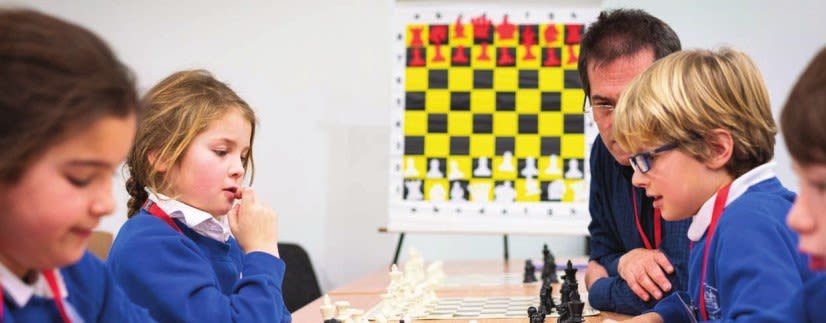
Our impact
The fundamental aim of the CSC Schools’ Programme is to close the attainment gap, a major challenge of education policy. Only 39% of disadvantaged children make expected progress in Key Stage 2 compared to 60% of their peers. According to the OECD, "Socio-economically disadvantaged students not only score lower…than advantaged students, they are less engaged with and at school, have less drive and motivation to learn, and hold negative self-beliefs about their ability to learn".
We work entirely in the state sector, prioritising areas of deprivation, to give every child the chance to realise their full potential. By running chess lessons during the school day, we ensure that our programme is fully inclusive – no child is excluded from our activities and children with special educational needs often flourish.
Our Schools’ Programme, currently being delivered weekly to over 250 schools across England and Wales, has the following impact:
Improved academic attainment in mathematics. Our award-winning curriculum, often delivered in KS2 in primary school, reinforces numeracy and develops basic mathematical techniques: coordinates, algorithms, simple proofs. In addition, the use of logic-based chess puzzles in our teaching develops problem solving skills essential to mathematics and wider STEM subjects. Studies have shown strong links between year-long chess programmes, such as that delivered by CSC, and enhanced test scores in mathematics (see, for example, paper A here).
Development of life skills. The State of Education Report 2017 found that 79% of primary and secondary school leaders thought their curriculums should include more life skills. The WHO defines life skills as including
problem solving and decision-making skills,
development of critical and creative thinking skills,
communication and interpersonal skills.
The CSC Schools’ Programme teaches these life skills through play.
Improving soft skills to enhance social mobility. A report by the Social Mobility Commission describes the important role played by extra-curricular activities in developing soft skills and increasing social mobility. Other research, funded by the Nuffield Foundation, found that extra-curricular activities improve academic performance and social skills of disadvantaged pupils. Through the CSC Schools’ Programme, over 20,000 children are receiving regular chess lessons or attending an after-school chess club. Over one-third of these children are in receipt of Pupil Premium.
Our chess tutors enrich children's learning experiences in schools across the country. But don't just take our word for it. You can read feedback from our headteachers, teachers, parents, and pupils below.







